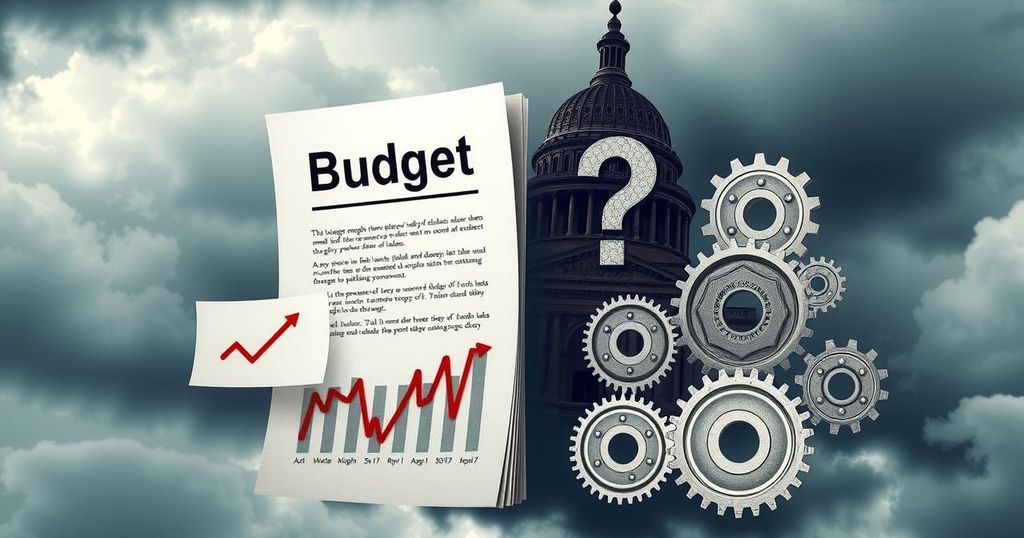Nigeria’s 2025 budget, while claiming to promote stability and growth under President Bola Tinubu, reveals significant shortcomings that threaten its effectiveness. With N54.99 trillion primarily earmarked for debt repayments and operational costs, there is minimal funding available for vital sectors like agriculture and manufacturing. The budget largely favors the elite and lacks measures to combat high unemployment and poverty.
Nigeria’s 2025 budget, presented by President Bola Tinubu, aims to foster stability, reduce poverty, and promote economic growth. However, critical concerns undermine its potential effectiveness in addressing the nation’s urgent economic challenges. This budget allocates a significant N54.99 trillion; yet, a considerable amount will be directed towards debt servicing, personnel expenditures, and administrative costs, resulting in insufficient funds for productive investments.
Essential sectors such as agriculture and manufacturing, which are vital for sustainable economic development, receive inadequate funding. While there are some hopeful investments in technology, the budget predominantly caters to the elite, failing to mitigate the prevalent issues of unemployment and poverty. Without a clear and decisive emphasis on enhancing productive capacity, the budget is unlikely to resolve Nigeria’s enduring economic difficulties.
In summary, Nigeria’s 2025 budget, despite its ambitious goals, seems insufficient to alleviate the country’s economic woes. The overwhelming allocation towards debt and personnel costs restricts funding for critical sectors essential for growth. Moreover, without substantial investments in productive capacity, the budget appears to perpetuate existing challenges rather than resolve them.
Original Source: iafrica.com






